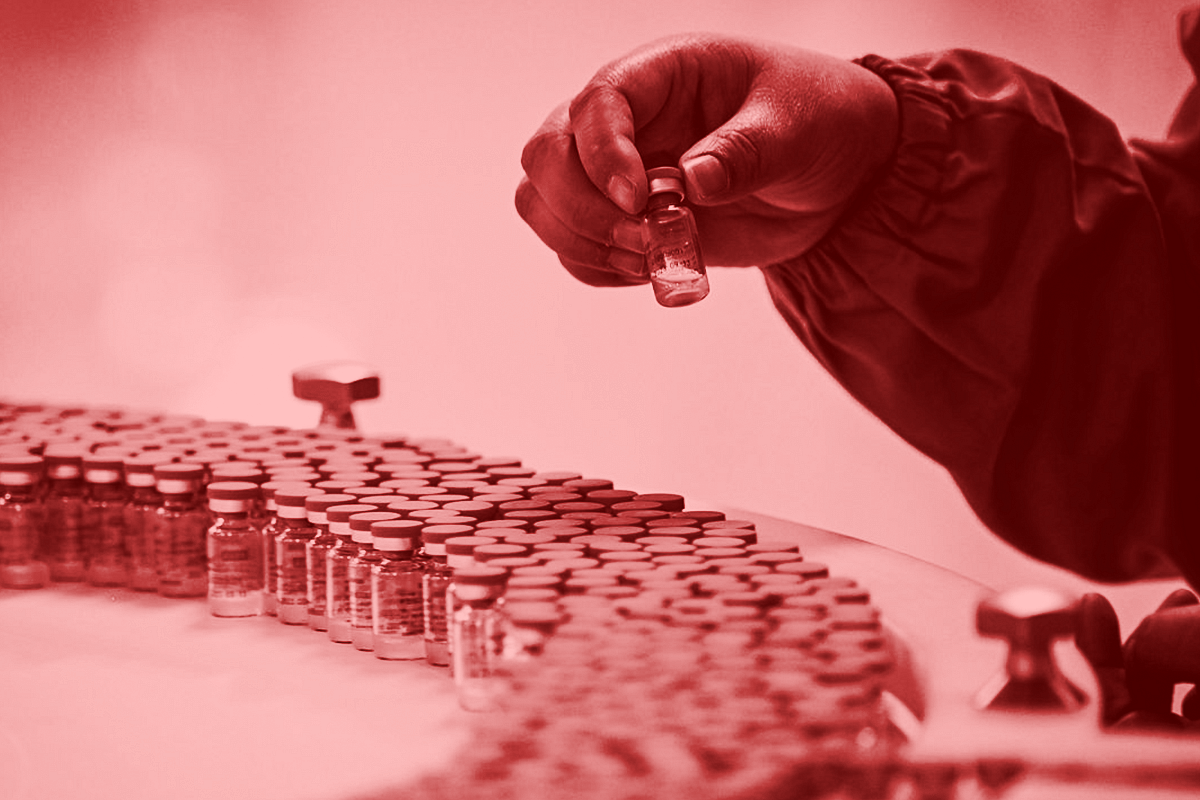News Brief
Stockpiling Covid Booster Shots Increases Risk Of More Contagious Coronavirus Variant
- As per the study, countries stockpiling vaccine doses for their own use rather than making them available to countries where few people have been vaccinated may encourage the emergence of more deadly Covid-19 variants.
- Research shows that prompt redistribution of vaccine surpluses is likely advantageous for both high and low vaccine access countries.

Covid-19 vaccine doses (Representative image)
Booster shots are for those people who have already completed Covid-19 vaccination to give them an extra layer of defence against the disease. While it was said that booster doses are given when the vaccine's impact begins to wear off after a certain time to reduce the risk of infection, the World Health Organization (WHO) is still not convinced about its necessity at this moment.
As wealthier countries rush to offer a third dosage of Covid-19 vaccines as booster shots, the WHO is redoubling its objections, with the health group's head Tedros Adhanom Ghebreyesus this week urging for a two-month pause to prioritise countries where the vaccination process is behind.
During a news conference in Hungary's capital, Budapest, Ghebreyesus called for countries to share their stocks with other nations for the latter to increase their first and second vaccination coverage.
The director-general of WHO said more contagious variants are more likely to emerge as a result of "vaccine injustice and vaccine nationalism". Additionally, he said: "The virus will get the chance to circulate in countries with low vaccination coverage, and the Delta variant could evolve to become more virulent, and at the same time more potent variants could also emerge."
Furthermore, the WHO director questioned whether booster shots are "effective at all," a remark made just days after the organisation's chief scientist, Soumya Swaminathan said, "we believe clearly that the data does not indicate that boosters are needed". As Swaminathan expressed more understanding for a recent decision in the United States to give booster jabs to people with weakened immune systems, Ghebreyesus also noted that boosters should only be administrated to people with the compromised immune system.
On 23 August, the WHO head said that only 10 countries have received 75 per cent of the 4.8 billion vaccine doses delivered to date, while vaccine coverage in Africa is less than 2 per cent.
Several countries, including the United States, Israel and Hungary, as well as others in Europe, the Middle East and Asia, are already providing or plan to provide Covid-19 booster shots to their citizens. Meanwhile, American officials announced that boosters will be widely available from 20 September, citing data showing waning protection against mild and moderate illness from the Pfizer-BioNTech and Moderna vaccines more than six months after inoculation.
American Surgeon General Vivek Murthy said: "Recent data makes clear that protection against mild and moderate disease has decreased over time. This is likely due to both waning immunity and the strength of the widespread Delta variant."
"We are concerned that this pattern of decline we are seeing will continue in the months ahead, which could lead to reduced protection against severe disease, hospitalisation, and death," he added.
On the other hand, other experts argued that countries pursuing boosters are making hasty decisions based on inadequate facts. Meanwhile, a study published in the journal Science backed up Ghebreyesus' claim that stockpiling supplies might lead to new, potentially more severe virus variants and an increase in Covid-19 infections.
According to the study researchers, countries stockpiling vaccine doses for their own use rather than making them available to countries where few people have been vaccinated may encourage the emergence of novel coronavirus variants and extend the pandemic.
According to the researchers' models, locations with low vaccine coverage make it more probable for the virus to evolve into more deadly versions, becoming more transmissible, vaccine-resistant or capable of escaping the immune system and infecting people with immunity. The models also show that prompt redistribution of vaccine surpluses is likely advantageous worldwide and for both high and low vaccine access countries.
Support Swarajya's 50 Ground Reports Project & Sponsor A Story
Every general election Swarajya does a 50 ground reports project.
Aimed only at serious readers and those who appreciate the nuances of political undercurrents, the project provides a sense of India's electoral landscape. As you know, these reports are produced after considerable investment of travel, time and effort on the ground.
This time too we've kicked off the project in style and have covered over 30 constituencies already. If you're someone who appreciates such work and have enjoyed our coverage please consider sponsoring a ground report for just Rs 2999 to Rs 19,999 - it goes a long way in helping us produce more quality reportage.
You can also back this project by becoming a subscriber for as little as Rs 999 - so do click on this links and choose a plan that suits you and back us.
Click below to contribute.
Latest